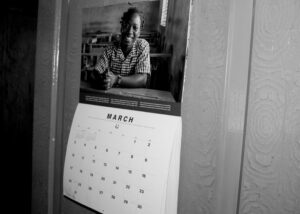A shotgun is ‘a tool to put meat on the table’
Re: “Swords into ploughshares, guns into art,” March 4, page 23.
A great sculpture. Irian Fast-Sittler does great work; keep it up! But I do have a problem with Paul Dyck calling this old shotgun a “weapon.”
When I was a young boy, living out on a farm in the mid-1930s, my father used a shotgun, much like the one in the sculpture, to put fresh meat on our table. He would go shoot a few jack rabbits, take the meat and grind it, and my mother would make meatballs fried in a bit of pork lard. What a feast! He would also shoot ducks and prairie chickens. Fresh meat was a real treat for our family of nine.
That shotgun was a tool to put meat on our table; it was never used to threaten or kill a human being. I believe it is a terrible thing to use anything to kill another human being. But are you aware of what things are used to kill people?
I went online and checked out how many homicides there were in Winnipeg, a city of over 700,000, in 2018. The police report 27 homicides; 12 were caused by blunt force trauma; 11 were killed with a knife. (Any knife that is sharp, pointed and has four inches of blade length can be used to kill a person; I checked our kitchen and found nine knives that fit this description, with another 10 in my workshop for hunting, filleting, meat-cutting and utility.) Four homicides were committed with guns.
All the homicides were wrong, brutal and senseless. Most of the guns used in mass shootings are guns made for war (for killing people). The one in the sculpture was made to be a tool to put meat on the table.
—Jake Neufeld, Boissevain, Man.
Writer compares Women Talking to Plato’s Republic
Re: “Women Talking is a ‘human story . . . a work of art’” letter, April 15, page 7.
Thank you to Evelyn Hoeppner for her letter.
For me, Miriam Toews’s novel resembles the dialogues in Plato’s Republic. A statement is made, followed by a response and then a response to the response, followed by another statement. And so on.
And so questions about what salvation means in the context of the characters in Women Talking and what forgiveness mean in the context of the actual Bolivian horrors are relevant questions in every context where abuse happens and where Christians try to be Christian.
—Jim Suderman, Winnipeg
Seniors ride a wave of social concern
We have been members of Erb Street Mennonite Church (Waterloo, Ont.) since the late 1970s. Over the years, peace and justice concerns have formed much of who we are.
Over time, it seems that societies have been caught in waves, or generations, of concern and action around social issues:
- The civil rights and the anti-war movement in the 1960s.
- Environmental concerns, birthed by Rachel Carson’s Silent Spring, and the feminist movement, starting in the 1960s.
- Opposition to nuclear weapons and nuclear power in the 1970s.
- Voices protesting human rights injustices among North American Indigenous peoples and Latin Americans in the 1970s and 1980s.
- The anti-apartheid movement in the 1970s and 1980s.
- Support for Palestinians since forever.
Thankfully, the churches have been active most of the time.
In between some of these waves there have been lulls. I believe we are at the tail end of a lull, and that the next big wave is beginning to grow, starting with Greta Thunberg, a 16-year-old Swedish student, followed by high school students in dozens of cities, and the Extinction Rebellion activists in London, who all are protesting against inadequate preparations being made to prevent worst-case climate change scenarios.
As seniors who are responsible for part of the environmental mess and the dangers and destruction caused by climate change, receiving a tax credit or carbon tax rebate doesn’t feel right to us. While realizing we need to do more, we will, on behalf of future generations, donate our $231 rebate to a non-profit organization that is fighting climate change. Join us.
—Dorothy and Richard MacBride, Waterloo, Ont.
What are your back-up plans?
A long cold February—often below -30C—had me wondering again how we’d do in such weather if the power was off for weeks, like after the big ice storm in the east 20 years ago. Not well, I concluded.
A strong case can be made for every home having a wood stove option. Generators are great but can break down or run out of fuel, and more might not be available.
Most people also don’t have first-aid kits and other things in their cars. Homes, too, often lack emergency supplies and equipment, and most of us lack basic emergency know-how.
Preparing for emergencies means we can better and more quickly help ourselves, our families and others before 911 personnel arrive, and in power outages and many other events we’re simply on our own all the way. Better to be a Good Samaritan, if possible, than another person needing help.
Modern technology helps us immensely, but it also lulls us into over-reliance, ignorance and complacency. It seems that, in decades past, many people knew more about how to deal with various problems and crises. Farms, homes and people were more self-reliant, it seems. Power grids, phone networks, water on tap, furnaces, rescue services and many other things are wonderful, but what are our back-up plans?
The world is increasingly heading into troubled times in terms of weather, economics and other things. Short and long emergencies will grow in frequency, severity and duration.
If it was always a good idea to prep, now it makes even more sense. Fear of what might come doesn’t help, but accepting reality and acting appropriately, does. The more we’re prepared to do something about this or that problem, the more peace of mind we have. Joined with faith, it’s an unbeatable combination.
—Howard Boldt, Osler, Sask.








Leave a Reply
You must be logged in to post a comment.